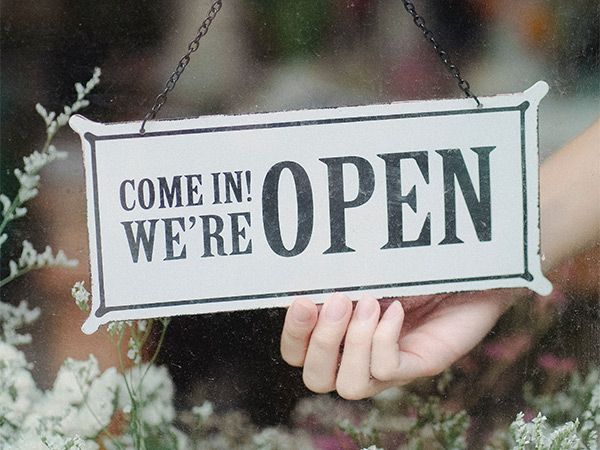Some retailers see value in walk-ins to their showrooms, while others are fiercely against open-door policies and will have an appointment only strategy, according to a lively debate on The kbbreview Podcast.
Retailers with high street showrooms see the value in keeping their doors open as the location gives vital footfall, according to Tony Robson, co-founder, Day True in London.
Speaking on the kbbreview podcast Robson said: “We have a high-street location which we pay a premium for. And footfall is a big part of our business as there are high-net-worth individuals walking in by the nature of where the showroom is. When they walk in it, we then concentrate on giving them a great experience and making them feel special and at home.”
Walk-ins to a showroom can give a boost of energy compared to appointments that can be stale, according to Kitchens International director Paul O’Brien. Kitchens International have six showrooms, and two are concessions inside larger furniture stores where clients walk in from the other company.
O’Brien said: “For appointments and presentations, it’s always by appointment. But we have a walk-ins policy so clients can walk into our studio. Moving forward, we will probably look to keep working the way we work. Appointments can be a little bit stale. We find there’s a bit more energy when people are walk and experience it.”
On the other side, some retailers believe that appointments are generally better for both client and designer as they can be more focused. For example, Rob Mascari of Mascari Designs in Nottingham has a hybrid model in the showroom but acknowledges the value of focused appointments.
Mascari said: “Working by appointment only is beneficial because we can be focused and prepared for somebody. With somebody just strolling in off the street. You might be ill-prepared. You might be with somebody else. So, we fall into the hybrid category, and we are open. We’ve just had a brand-new website built but we have purposely not put on things like opening times. And everything is geared on every page for the client to contact us direct, so we can arrange a time to speak to them that suits them.”
He concluded: “Moving forward, I’m sure probably all of us would like to be working on an appointment-only basis. But there may be a bit of social pressure that possibly triggered that. We could be a bit shrewder about this and be fully appointment-only and it could be three days a week that we’re not just heating spaces, for no purpose.”
According to Keith Myers, director of Myers Touch, a retailer’s time is valuable, which is why he prefers appointments. He said on the podcast: “One is that it’s a form of qualification of a lead, which I think is quite essential. Somebody who makes an appointment qualifies themselves to you to some degree instead of just wandering off the streets.
“The other thing is that people that have high value, you book appointments to see them. I don’t want to get in on a Saturday and sit there and waiting for somebody to turn up. I’m more important than that. The gift is the skill that I have and the ability that I have. I want you to get the best out of me. And therefore, booking an appointment is also in a sense affirming the value that we have as designers and the skill that we bring. And because we’re important, we book an appointment to see us, as you should pay for our time as well.”
- Listen to the full debate below, on desktop, YouTube, or on your podcast player of choice like Apple Podcasts or Spotify.
